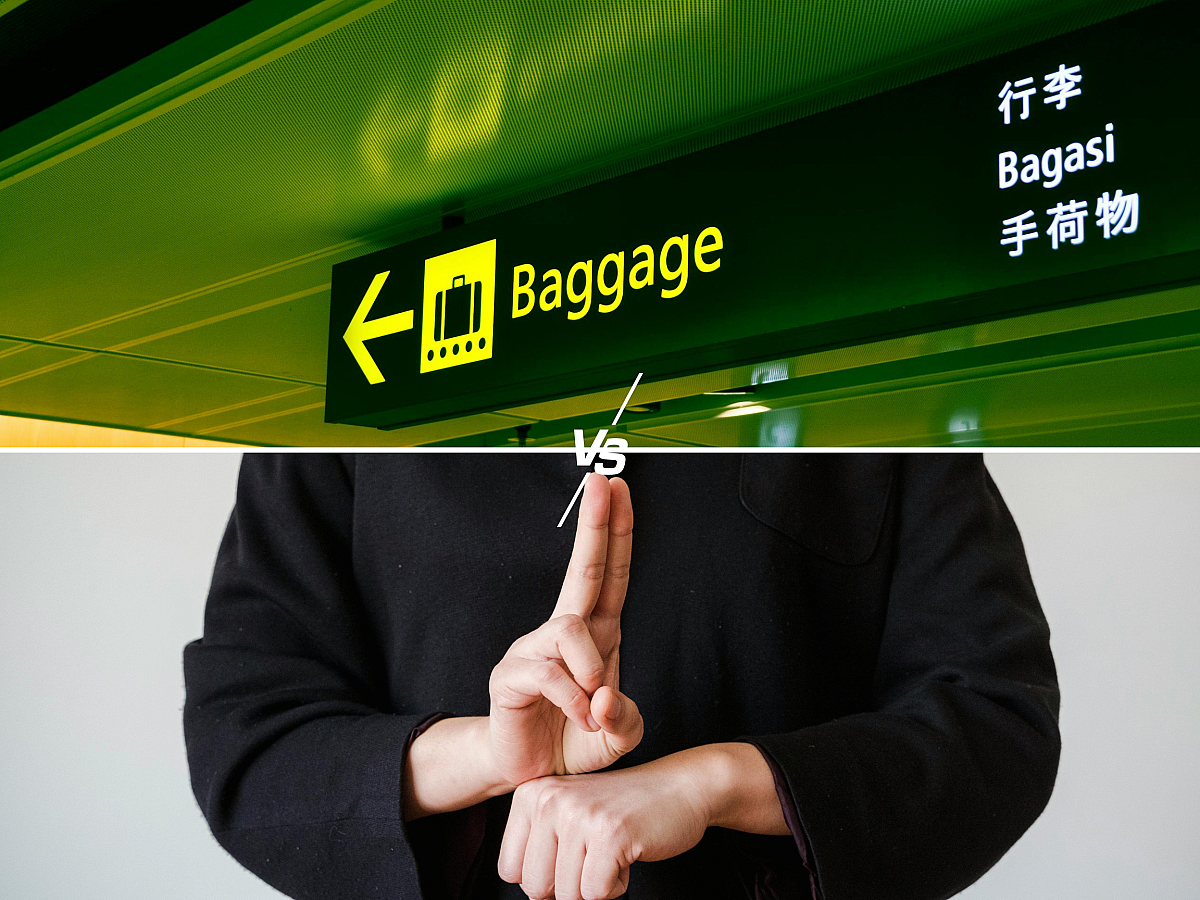 In December last year, Brazil overtook the UK as the world’s 6th largest economy. Rich in oil and gas reserves, Brazil hopes to make it to 5th place by the end of 2012. Portugal, on the other hand, received a bail-out this year of 78bn Euros from its Eurozone partners.
In response, the Portuguese government have moved to adopt the phonetic form of the language most commonly used by Brazil in order to revive its flagging economy. This will be implemented across the Portuguese-speaking world, in countries such as Angola, Cape Verde, Timor Leste, Guinea Bissau, Mozambique, São Tome and Principe, all former Portuguese colonies. The reform is being implemented by the Portuguese government after 22 years of heated debate, much to the chagrin of its detractors.
European Portuguese is traditionally very precise and the proposal aims to simplify the language. Under the reform, certain letters, such as the consonants P and C, will be removed when the sound is silent, as is the case with Brazilian Portuguese. For example, optimo (great) will become otimo, direccao (direction) will be spelt as direcao. The Portuguese alphabet will be expanded to 26 letters, and new rules regarding accents will be put in place.
Implementation of the new rules has been mixed so far. Portuguese schools have been reluctant to implement the changes, accepting work in both old and new spelling. Meanwhile, national newspapers and media outlets have been quick to adopt the reforms. All public bodies have until 2014 to make the transition to the new standardised spelling system.
Supporters of the accord argue that adopting Brazilian Portuguese and implementing a spelling reform will potentially open up major markets, reviving Portugal’s flagging economy, whereas detractors claim that it is merely a politically tool to ease the expansion of Brazil and has little to no linguistic merit.
Claudia Figueiredo, freelance translator of Portuguese to English, is not opposed to the spelling reform on orthographical principle and believes that the constant evolution of any language will demand some beneficial changes, but disagrees with the reform on the basis that:
‘This agreement has been made, and negotiated, with no compliance with the requirement to consult language experts and other entities with specific competencies on the matter.’ Ms. Figueiredo also claims that the accord of 1990 was merely designed as a recommendation and is, in fact, not legally binding; ‘the agreement of 1990 is merely a resolution made by the "Assembleia da República" and the "Conselho de Ministros"…which are valid only as a recommendation. These are not laws in statute….’[1]
Inga Kilikeviciene, sworn translator, agrees; ‘they (the reforms) just don't bring any essential or practical improvement to the language and thus, are seen as a political move rather than genuine care about the language. Many see it as an attack on the cultural heritage.’
The situation in Portugal at the moment is reminiscent of the German spelling reform of 1996; an act designed to simplify German spelling, thus making it easier and more accessible to learners. The German-speaking countries of Germany, Austria, Switzerland and Liechtenstein collectively signed an international agreement designed to implement the changes universally across their respective countries. These changes were made mandatory in all aspects of public life, to much controversy.
Under the reform, compound words such as kennenlernen (to get to know someone) would be separated kennen lernen, capitalisation of all nouns was made uniform, and β (a consonant letter used to represent ss) would only be used after a long vowel or diphthong; e.g. Straβen (streets), grüβen (to greet), to name but a few examples. Many Germans saw this as unnecessary cultural oppression and some groups such as Forschungsgruppe Deutsche Sprache (FDS) (German Language Research Group) are still campaigning against the reform to this day, despite the transitional period being long finished.
Wolfestone Translation’s German translator Silke Lührmann has this to say;
‘Languages are living entities that evolve organically. They need to be protected from any politically motivated attempts at standardisation and technocratic regulation. In Germany, the "spelling reform" imposed by government in 1996 has impoverished the written language as a means of nuanced expression and caused a lot of confusion - in schools, businesses, newspaper offices and publishing houses across the German-speaking world.’
It’s not just linguists and translators that oppose the spelling reform. CL News, a Portuguese news agency, asked its online users whether they agreed with the changes; a resounding 80.44% of participants voted against the accord, claiming that a new spelling system would be confusing and complicated.
The spelling reform taking place in Portugal at the moment runs the real risk of undermining public support for the government, arguably in a time when they need it the most. The evolution of language allows for natural change, however, the unnecessary dissection and simplification of the Portuguese language in order to accommodate the emerging economy of Brazil is an extremely unpopular move. The Portuguese government is obviously anxious to seek a solution to its current financial woes, but at what cost?
In December last year, Brazil overtook the UK as the world’s 6th largest economy. Rich in oil and gas reserves, Brazil hopes to make it to 5th place by the end of 2012. Portugal, on the other hand, received a bail-out this year of 78bn Euros from its Eurozone partners.
In response, the Portuguese government have moved to adopt the phonetic form of the language most commonly used by Brazil in order to revive its flagging economy. This will be implemented across the Portuguese-speaking world, in countries such as Angola, Cape Verde, Timor Leste, Guinea Bissau, Mozambique, São Tome and Principe, all former Portuguese colonies. The reform is being implemented by the Portuguese government after 22 years of heated debate, much to the chagrin of its detractors.
European Portuguese is traditionally very precise and the proposal aims to simplify the language. Under the reform, certain letters, such as the consonants P and C, will be removed when the sound is silent, as is the case with Brazilian Portuguese. For example, optimo (great) will become otimo, direccao (direction) will be spelt as direcao. The Portuguese alphabet will be expanded to 26 letters, and new rules regarding accents will be put in place.
Implementation of the new rules has been mixed so far. Portuguese schools have been reluctant to implement the changes, accepting work in both old and new spelling. Meanwhile, national newspapers and media outlets have been quick to adopt the reforms. All public bodies have until 2014 to make the transition to the new standardised spelling system.
Supporters of the accord argue that adopting Brazilian Portuguese and implementing a spelling reform will potentially open up major markets, reviving Portugal’s flagging economy, whereas detractors claim that it is merely a politically tool to ease the expansion of Brazil and has little to no linguistic merit.
Claudia Figueiredo, freelance translator of Portuguese to English, is not opposed to the spelling reform on orthographical principle and believes that the constant evolution of any language will demand some beneficial changes, but disagrees with the reform on the basis that:
‘This agreement has been made, and negotiated, with no compliance with the requirement to consult language experts and other entities with specific competencies on the matter.’ Ms. Figueiredo also claims that the accord of 1990 was merely designed as a recommendation and is, in fact, not legally binding; ‘the agreement of 1990 is merely a resolution made by the "Assembleia da República" and the "Conselho de Ministros"…which are valid only as a recommendation. These are not laws in statute….’[1]
Inga Kilikeviciene, sworn translator, agrees; ‘they (the reforms) just don't bring any essential or practical improvement to the language and thus, are seen as a political move rather than genuine care about the language. Many see it as an attack on the cultural heritage.’
The situation in Portugal at the moment is reminiscent of the German spelling reform of 1996; an act designed to simplify German spelling, thus making it easier and more accessible to learners. The German-speaking countries of Germany, Austria, Switzerland and Liechtenstein collectively signed an international agreement designed to implement the changes universally across their respective countries. These changes were made mandatory in all aspects of public life, to much controversy.
Under the reform, compound words such as kennenlernen (to get to know someone) would be separated kennen lernen, capitalisation of all nouns was made uniform, and β (a consonant letter used to represent ss) would only be used after a long vowel or diphthong; e.g. Straβen (streets), grüβen (to greet), to name but a few examples. Many Germans saw this as unnecessary cultural oppression and some groups such as Forschungsgruppe Deutsche Sprache (FDS) (German Language Research Group) are still campaigning against the reform to this day, despite the transitional period being long finished.
Wolfestone Translation’s German translator Silke Lührmann has this to say;
‘Languages are living entities that evolve organically. They need to be protected from any politically motivated attempts at standardisation and technocratic regulation. In Germany, the "spelling reform" imposed by government in 1996 has impoverished the written language as a means of nuanced expression and caused a lot of confusion - in schools, businesses, newspaper offices and publishing houses across the German-speaking world.’
It’s not just linguists and translators that oppose the spelling reform. CL News, a Portuguese news agency, asked its online users whether they agreed with the changes; a resounding 80.44% of participants voted against the accord, claiming that a new spelling system would be confusing and complicated.
The spelling reform taking place in Portugal at the moment runs the real risk of undermining public support for the government, arguably in a time when they need it the most. The evolution of language allows for natural change, however, the unnecessary dissection and simplification of the Portuguese language in order to accommodate the emerging economy of Brazil is an extremely unpopular move. The Portuguese government is obviously anxious to seek a solution to its current financial woes, but at what cost?
Language Reform Spells Trouble for Portugal
In December last year, Brazil overtook the UK as the world’s 6th largest economy. Rich in oil and gas reserves, Brazil hopes to make it to 5th place by the end of 2012. Portugal, on the other hand, received a bail-out this year of 78bn Euros from its Eurozone partners.
 In December last year, Brazil overtook the UK as the world’s 6th largest economy. Rich in oil and gas reserves, Brazil hopes to make it to 5th place by the end of 2012. Portugal, on the other hand, received a bail-out this year of 78bn Euros from its Eurozone partners.
In response, the Portuguese government have moved to adopt the phonetic form of the language most commonly used by Brazil in order to revive its flagging economy. This will be implemented across the Portuguese-speaking world, in countries such as Angola, Cape Verde, Timor Leste, Guinea Bissau, Mozambique, São Tome and Principe, all former Portuguese colonies. The reform is being implemented by the Portuguese government after 22 years of heated debate, much to the chagrin of its detractors.
European Portuguese is traditionally very precise and the proposal aims to simplify the language. Under the reform, certain letters, such as the consonants P and C, will be removed when the sound is silent, as is the case with Brazilian Portuguese. For example, optimo (great) will become otimo, direccao (direction) will be spelt as direcao. The Portuguese alphabet will be expanded to 26 letters, and new rules regarding accents will be put in place.
Implementation of the new rules has been mixed so far. Portuguese schools have been reluctant to implement the changes, accepting work in both old and new spelling. Meanwhile, national newspapers and media outlets have been quick to adopt the reforms. All public bodies have until 2014 to make the transition to the new standardised spelling system.
Supporters of the accord argue that adopting Brazilian Portuguese and implementing a spelling reform will potentially open up major markets, reviving Portugal’s flagging economy, whereas detractors claim that it is merely a politically tool to ease the expansion of Brazil and has little to no linguistic merit.
Claudia Figueiredo, freelance translator of Portuguese to English, is not opposed to the spelling reform on orthographical principle and believes that the constant evolution of any language will demand some beneficial changes, but disagrees with the reform on the basis that:
‘This agreement has been made, and negotiated, with no compliance with the requirement to consult language experts and other entities with specific competencies on the matter.’ Ms. Figueiredo also claims that the accord of 1990 was merely designed as a recommendation and is, in fact, not legally binding; ‘the agreement of 1990 is merely a resolution made by the "Assembleia da República" and the "Conselho de Ministros"…which are valid only as a recommendation. These are not laws in statute….’[1]
Inga Kilikeviciene, sworn translator, agrees; ‘they (the reforms) just don't bring any essential or practical improvement to the language and thus, are seen as a political move rather than genuine care about the language. Many see it as an attack on the cultural heritage.’
The situation in Portugal at the moment is reminiscent of the German spelling reform of 1996; an act designed to simplify German spelling, thus making it easier and more accessible to learners. The German-speaking countries of Germany, Austria, Switzerland and Liechtenstein collectively signed an international agreement designed to implement the changes universally across their respective countries. These changes were made mandatory in all aspects of public life, to much controversy.
Under the reform, compound words such as kennenlernen (to get to know someone) would be separated kennen lernen, capitalisation of all nouns was made uniform, and β (a consonant letter used to represent ss) would only be used after a long vowel or diphthong; e.g. Straβen (streets), grüβen (to greet), to name but a few examples. Many Germans saw this as unnecessary cultural oppression and some groups such as Forschungsgruppe Deutsche Sprache (FDS) (German Language Research Group) are still campaigning against the reform to this day, despite the transitional period being long finished.
Wolfestone Translation’s German translator Silke Lührmann has this to say;
‘Languages are living entities that evolve organically. They need to be protected from any politically motivated attempts at standardisation and technocratic regulation. In Germany, the "spelling reform" imposed by government in 1996 has impoverished the written language as a means of nuanced expression and caused a lot of confusion - in schools, businesses, newspaper offices and publishing houses across the German-speaking world.’
It’s not just linguists and translators that oppose the spelling reform. CL News, a Portuguese news agency, asked its online users whether they agreed with the changes; a resounding 80.44% of participants voted against the accord, claiming that a new spelling system would be confusing and complicated.
The spelling reform taking place in Portugal at the moment runs the real risk of undermining public support for the government, arguably in a time when they need it the most. The evolution of language allows for natural change, however, the unnecessary dissection and simplification of the Portuguese language in order to accommodate the emerging economy of Brazil is an extremely unpopular move. The Portuguese government is obviously anxious to seek a solution to its current financial woes, but at what cost?
In December last year, Brazil overtook the UK as the world’s 6th largest economy. Rich in oil and gas reserves, Brazil hopes to make it to 5th place by the end of 2012. Portugal, on the other hand, received a bail-out this year of 78bn Euros from its Eurozone partners.
In response, the Portuguese government have moved to adopt the phonetic form of the language most commonly used by Brazil in order to revive its flagging economy. This will be implemented across the Portuguese-speaking world, in countries such as Angola, Cape Verde, Timor Leste, Guinea Bissau, Mozambique, São Tome and Principe, all former Portuguese colonies. The reform is being implemented by the Portuguese government after 22 years of heated debate, much to the chagrin of its detractors.
European Portuguese is traditionally very precise and the proposal aims to simplify the language. Under the reform, certain letters, such as the consonants P and C, will be removed when the sound is silent, as is the case with Brazilian Portuguese. For example, optimo (great) will become otimo, direccao (direction) will be spelt as direcao. The Portuguese alphabet will be expanded to 26 letters, and new rules regarding accents will be put in place.
Implementation of the new rules has been mixed so far. Portuguese schools have been reluctant to implement the changes, accepting work in both old and new spelling. Meanwhile, national newspapers and media outlets have been quick to adopt the reforms. All public bodies have until 2014 to make the transition to the new standardised spelling system.
Supporters of the accord argue that adopting Brazilian Portuguese and implementing a spelling reform will potentially open up major markets, reviving Portugal’s flagging economy, whereas detractors claim that it is merely a politically tool to ease the expansion of Brazil and has little to no linguistic merit.
Claudia Figueiredo, freelance translator of Portuguese to English, is not opposed to the spelling reform on orthographical principle and believes that the constant evolution of any language will demand some beneficial changes, but disagrees with the reform on the basis that:
‘This agreement has been made, and negotiated, with no compliance with the requirement to consult language experts and other entities with specific competencies on the matter.’ Ms. Figueiredo also claims that the accord of 1990 was merely designed as a recommendation and is, in fact, not legally binding; ‘the agreement of 1990 is merely a resolution made by the "Assembleia da República" and the "Conselho de Ministros"…which are valid only as a recommendation. These are not laws in statute….’[1]
Inga Kilikeviciene, sworn translator, agrees; ‘they (the reforms) just don't bring any essential or practical improvement to the language and thus, are seen as a political move rather than genuine care about the language. Many see it as an attack on the cultural heritage.’
The situation in Portugal at the moment is reminiscent of the German spelling reform of 1996; an act designed to simplify German spelling, thus making it easier and more accessible to learners. The German-speaking countries of Germany, Austria, Switzerland and Liechtenstein collectively signed an international agreement designed to implement the changes universally across their respective countries. These changes were made mandatory in all aspects of public life, to much controversy.
Under the reform, compound words such as kennenlernen (to get to know someone) would be separated kennen lernen, capitalisation of all nouns was made uniform, and β (a consonant letter used to represent ss) would only be used after a long vowel or diphthong; e.g. Straβen (streets), grüβen (to greet), to name but a few examples. Many Germans saw this as unnecessary cultural oppression and some groups such as Forschungsgruppe Deutsche Sprache (FDS) (German Language Research Group) are still campaigning against the reform to this day, despite the transitional period being long finished.
Wolfestone Translation’s German translator Silke Lührmann has this to say;
‘Languages are living entities that evolve organically. They need to be protected from any politically motivated attempts at standardisation and technocratic regulation. In Germany, the "spelling reform" imposed by government in 1996 has impoverished the written language as a means of nuanced expression and caused a lot of confusion - in schools, businesses, newspaper offices and publishing houses across the German-speaking world.’
It’s not just linguists and translators that oppose the spelling reform. CL News, a Portuguese news agency, asked its online users whether they agreed with the changes; a resounding 80.44% of participants voted against the accord, claiming that a new spelling system would be confusing and complicated.
The spelling reform taking place in Portugal at the moment runs the real risk of undermining public support for the government, arguably in a time when they need it the most. The evolution of language allows for natural change, however, the unnecessary dissection and simplification of the Portuguese language in order to accommodate the emerging economy of Brazil is an extremely unpopular move. The Portuguese government is obviously anxious to seek a solution to its current financial woes, but at what cost?
Get a quote for your translation project within 60 minutes.






